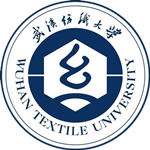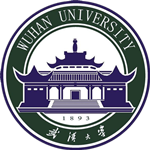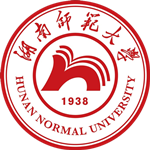University Description
Emerging at the historical juncture of rejuvenating China ’s national light industry, Wuhan Textile University (WTU) has gained a foothold in response to the demand of times, since the founding of its predecessor Wuhan Institute of Textile Engineering in 1958. In 1999, the institute was renamed as Wuhan University of Science and Engineering. In 2010, after successively merging the former Hubei Foreign Trade School and Hubei Academy of Finance and Economics, the present name of Wuhan Textile University was formally adopted.
By upholding the motto of “striving for truth and perfection” and advocating its campus spirit of “perseverance for cultivating qualified talents with unremitting efforts”, WTU has been adhering to its path of characteristic development and open-up practice in education, vigorously supporting the textile industry for enhancing regional economy and social development. For the past 60-plus years, WTU has already established a wide range of disciplines in the fields of science, engineering, humanity, law, economics, management, arts, etc., with distinctive characteristics and advantages. Listed among the first batch of universities for “Basic Capacity Building Project for Universities in Western and Central China”, “Education and Cultivation Scheme for Outstanding Engineers” initiated by Ministry of Education, PRC, “Domestic First-class Discipline Construction Initiative”, as well as one of the “Top Ten Prestigious Fashion Institutes in China”, WTU has been exerting on the construction of a high-caliber university featuring its graceful environment, outstanding spirits, adorable esteem among its faculties and students, with social prestige and distinctive characteristics in the field of textile industry.
Located in Wuhan city of Central China ’s Hubei province, WTU has four campuses occupying an area of 130-plus hectares. Boasting 20 teaching departments and schools, it has more than 20,000 full-time students of various levels. Currently, it provides 66 programs for undergraduate students, including 4 featured programs of National-level, 3 programs of First-class Discipline Construction Initiative of National-level, 2 programs for accreditation of engineering education by Ministry of Education, PRC, 8 programs of “Education and Cultivation Scheme for Outstanding Engineers”, as well as 7 provincial brand programs and 14 programs of the first-class disciplines of provincial level. With its 15 master’s degree conferment programs of the first-class disciplines, 9 professional master’s degree conferment programs and 7 discipline categories, WTU also boasts 8 provincial key disciplines of the first-level, plus 5 competitive and distinctive disciplines of provincial-level, among them including 2 discipline clusters (i.e., Modern Textile Technology, Fashion and Creative Culture) as key construction programs in the 13th Five-Year Plan for competitive and distinctive disciplines in provincial universities. The discipline textile science and engineering has been listed into “Domestic First-class Discipline Construction Initiative” in Hubei province. The other three disciplines, such as material science, chemistry, and engineering, are listed into the front 1% of ESI’s global ranking list.
By implementing the initiative of introducing high-caliber talents, WTU has become a magnet to converge the elites from all walks of life. The practice of adhering to both talents introduction and cultivation has enabled WTU to build a high-quality team of teaching faculty with lofty ideals and convictions, good morals, solid knowledge and in-depth learning, affection and benevolence. It is among the first batch of universities and colleges to be listed as the “Hubei Provincial Innovation and Entrepreneurship Base for Overseas High-caliber Talents”. Currently, WTU boasts a faculty of 2,000-plus members, among them there are 1,300-plus full-time teachers, including those 700-plus teachers with senior professional titles and 700-plus teachers with doctoral degrees. In addition, we also boast a galaxy of top-notch elites, such as the seven academicians both from home and abroad who are working long-term for WTU (including one home-bred academician elected by Russian Academy of Natural Sciences), in addition to those 10 talents of national level, 200-plus talents of provincial level, 38 talents enjoying the special government allowance granted by the State Council, PRC, and 12 talents enjoying the specialized government allowance granted by Hubei Provincial People’s Government; Besides that, we also boast a contingent of prominent talents entitled “sunshine scholars” with overseas educational backgrounds.
By implementing the scheme of cultivating qualified talents, WTU stands firm to the requirements of “four returns” proposed by Ministry of Education, with the philosophy of focusing on both moral cultivations and core elements of education. In the 3-year action plan of promoting the capacity of talent cultivation, we have established a sound paradigm of cultivating talents in moral education, intellectual education, physical education, aesthetic education and labor education as well. With the building of “output-oriented” talent cultivation system, we give full play to discipline construction featuring “novelty in both engineering and arts”, so as to enhance the cultivation of practical and innovative talents for coordinated development in such aspects as “expertise, aptitude and morals”. As the first batch of undergraduate university in enrollment work, WTU also boasts its teaching team and experimental zone for talent cultivation pattern reforms of national levels. Altogether, we have 2 first-class undergraduate courses of national levels and 6 national qualified open courses, in addition to 1 project for novelty research and practice in engineering approved by the Ministry of Education. In recent years, we have accomplished 2 second prizes of teaching results of national levels for universities and colleges, 11 first prizes of teaching results of provincial and ministerial levels. With strenuous efforts in implementing its education in innovation and entrepreneurship, WTU has been implementing the pattern of integrating both its innovation project and workshop. The establishment of Hubei provincial innovation and entrepreneurship base helps us to improve the students’ capacity in innovation and practice as well as comprehensive qualities, with fruitful outcomes in discipline contests of national and provincial levels. By implementing the project of scientific and technological strengths, WTU attaches great importance to technological innovation for fostering key outcomes in scientific research. In this way, we aim at promoting transformation of these outcomes and incessantly scaling up our competitiveness in science and technology. We also boast a national key laboratory for new textile materials and advanced processing technology, a national-regional joint engineering laboratory, plus a key laboratory and an engineering research center supported by Ministry of Education, a national college heritage base for splendid traditional Chinese culture, as well as a batch of provincial key research bases. By undertaking nearly 200 projects sponsored by National Natural/ Social Science Foundation of China, including such “973 Project”, “863 Project” and some key supporting projects for scientific research of both national and provincial levels, WTU has gained distinctive advantages in the fields of textile, printing and dying, fashion and arts as well. Some of our achievements in scientific research have already been acknowledged as reaching advanced levels both internationally and domestically. In recent years, we has been awarded 1 first prize of National Science and Technology Progress Awards, 3 second prizes of National Science and Technology Progress Awards, in addition to the 2 second prizes of National Awards for Technological Invention. With joint efforts by WTU and the textile & fashion industry clustering regions to build “incubators” for production, education, and research, a batch of projects for collaborations between textile universities, enterprises, and regional governments have been put into practice in Hubei, Anhui, Jiangsu, Zhejiang, and Shandong. All these attempts have significantly helped us to scale up our capacity in social service.
Just as a citation of a poem in Tang Dynasty depicts, “The banks seem wide at the full tide; A sail with ease hangs in soft breeze.” The same is also true for WTU’s endeavors to keep pace with the development of the times and forge ahead in synergy with China ’s national industry to stand by its duty in social service for characteristic development, with its profound contributions to rejuvenate China ’s national industry as well as economic and social development in Hubei province. In the 14th Five-Year Plan for National Economic and Social Development, WTU will keep a foothold on the phrase for new development, implement the ideal for new development, integrate itself into the paradigm of new development, and adhere to the systematic perspectives for overall planning. On the basis of cultivating people by moral education and student-centered ideals under the fully enhanced leadership of CPC, WTU will bring full play to further its overall reform, and propel its operation in accordance with laws and regulations for promoting the overall quality of talents. We will exert on cultivation of application and innovation-oriented talents by upgrading our capacity in scientific innovation and achievement transformation. With all these efforts, we will make more contributions to promote regional economy and social development as well as transformation and upgrading of the textile industry.








-logo.png)